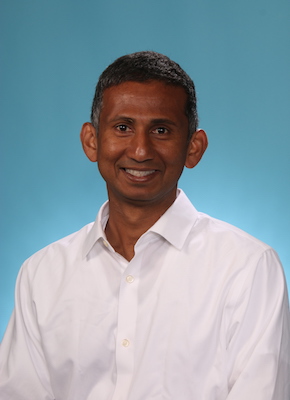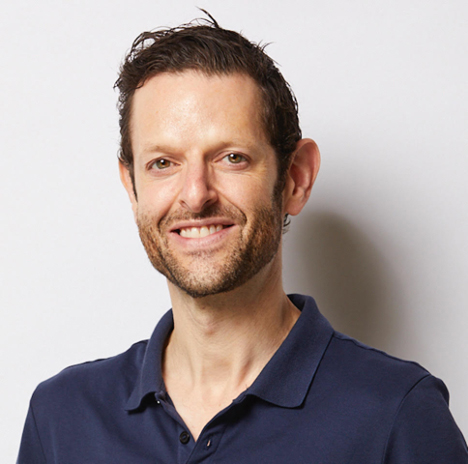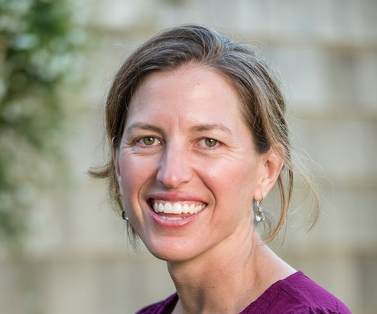 Dr. Gaya Amarasinghe is a professor at Washington University School of Medicine in St Louis. He received his Bachelor of Science degree in Chemistry from the City College of New York in 1997. From the summer of 1994 through fall 1996, Dr. Amarasinghe also worked as a Research Assistant in the laboratory of Professor David Cowburn at the Rockefeller University in New York where he gained a keen interest in mechanisms that control signal transduction. Dr. Amarasinghe conducted his thesis studies with HHMI Investigator Dr. Michael Summers at the University of Maryland, Baltimore County where he characterized the structural basis for HIV-1 genome packaging by nuclear magnetic resonance based methods. From 2001-2007, Dr. Amarasinghe conducted his postdoctoral research at the University of Texas, Southwestern Medical Center at Dallas, to study signaling and structural dynamics in the multidomain Vav proto-oncoprotein under a fellowship from the Cancer Research Institute. Dr. Amarasinghe began his independent research program in 2007 in the Biochemistry, Biophysics and Molecular Biology Department at Iowa State University. At Iowa State University, Dr. Amarasinghe also served as the faculty advisor to the BBMB undergraduate club and the Stupka Symposium. In the fall of 2011, Dr. Amarasinghe moved to the Washington University School of Medicine in St Louis, where he is currently a Professor of Pathology and Immunology, of Biochemistry and Molecular Biophysics, and of Molecular Microbiology. The Amarasinghe group uses hybrid structural methods along with biochemistry, cell biology, and virology to determine how microbial infections impact host signaling.
Dr. Gaya Amarasinghe is a professor at Washington University School of Medicine in St Louis. He received his Bachelor of Science degree in Chemistry from the City College of New York in 1997. From the summer of 1994 through fall 1996, Dr. Amarasinghe also worked as a Research Assistant in the laboratory of Professor David Cowburn at the Rockefeller University in New York where he gained a keen interest in mechanisms that control signal transduction. Dr. Amarasinghe conducted his thesis studies with HHMI Investigator Dr. Michael Summers at the University of Maryland, Baltimore County where he characterized the structural basis for HIV-1 genome packaging by nuclear magnetic resonance based methods. From 2001-2007, Dr. Amarasinghe conducted his postdoctoral research at the University of Texas, Southwestern Medical Center at Dallas, to study signaling and structural dynamics in the multidomain Vav proto-oncoprotein under a fellowship from the Cancer Research Institute. Dr. Amarasinghe began his independent research program in 2007 in the Biochemistry, Biophysics and Molecular Biology Department at Iowa State University. At Iowa State University, Dr. Amarasinghe also served as the faculty advisor to the BBMB undergraduate club and the Stupka Symposium. In the fall of 2011, Dr. Amarasinghe moved to the Washington University School of Medicine in St Louis, where he is currently a Professor of Pathology and Immunology, of Biochemistry and Molecular Biophysics, and of Molecular Microbiology. The Amarasinghe group uses hybrid structural methods along with biochemistry, cell biology, and virology to determine how microbial infections impact host signaling.
 Dr. Jeff Karp is a Professor of Medicine at Brigham and Women’s Hospital, Harvard Medical School. He is also a principal faculty member at the Harvard Stem Cell Institute, and an affiliate faculty member at the Broad Institute and at the Harvard-MIT Division of Health Sciences and Technology.
Dr. Jeff Karp is a Professor of Medicine at Brigham and Women’s Hospital, Harvard Medical School. He is also a principal faculty member at the Harvard Stem Cell Institute, and an affiliate faculty member at the Broad Institute and at the Harvard-MIT Division of Health Sciences and Technology.
He works in the fields of drug delivery, medical devices, stem cell therapeutics, and tissue adhesives. He has published over 125 peer-reviewed papers, with >22,000 citations, and has given over 300 invited lectures. He has over 100 issued or pending national and international patents. Several technologies developed in his lab have led to multiple products currently in development or on the market and for the launch of eight companies that have raised over $450 million in funding. Technologies include high-tech skincare (Skintifique, products sold in pharmacies throughout EU), tissue adhesives (Tissium, EU Approval in 2017) and 3D printed biomedical devices, immunomodulation with biologically responsive materials (Alivio Tx), small molecule regenerative therapeutics ($FREQ – NASDAQ), cannabinoid therapeutics (Molecular Infusions acquired by Suterra Wellness in 2019), biomedical devices to improve child safety (Landsdowne Labs), needles that automatically stop at their target (Bullseye Therapeutics), and a bioengineered luminal coating for controlled GI targeting (Altrix Bio).
Karp has received >50 awards and honors. Most recently Jeff received the highest award from the Society For Biomaterials for innovation – the Clemson Award for Applied Research. Boston Magazine recognized Karp as one of 11 Boston Doctors Making Medical Breakthroughs.
In addition to his research goals, Karp is dedicated to developing the careers of the next generation bioengineers at the forefront of regenerative medicine. He was selected as the Outstanding Faculty Undergraduate Mentor among all faculty at MIT and he received the HST McMahon Mentoring award for being the top mentor of Harvard-MIT students. To date, 22 trainees from his laboratory have secured faculty positions.
 Dr. Elizabeth Sattely is an Associate Professor and HHMI Investigator in the Department of Chemical Engineering at Stanford and a Stanford ChEM-H Faculty Fellow. She also serves as an Honorary Adjunct Staff Scientist at the Carnegie Institution of Science. Dr. Sattely completed her graduate training at Boston College in organic chemistry and her postdoctoral studies in biochemistry at Harvard Medical School where she worked on natural product biosynthesis in bacteria. Inspired by human reliance on plants and plant-derived molecules for food and medicine, the Sattely laboratory is focused on the discovery and engineering of plant metabolic pathways to make molecules that can enhance human and plant health. Work in the Sattely lab has been recognized by an NIH New Innovator Award, a DOE Early Career Award, an HHMI-Simons Faculty Scholar Award, a DARPA Young Investigator Award, and a AAAS Mason Award for Women in the Chemical Sciences.
Dr. Elizabeth Sattely is an Associate Professor and HHMI Investigator in the Department of Chemical Engineering at Stanford and a Stanford ChEM-H Faculty Fellow. She also serves as an Honorary Adjunct Staff Scientist at the Carnegie Institution of Science. Dr. Sattely completed her graduate training at Boston College in organic chemistry and her postdoctoral studies in biochemistry at Harvard Medical School where she worked on natural product biosynthesis in bacteria. Inspired by human reliance on plants and plant-derived molecules for food and medicine, the Sattely laboratory is focused on the discovery and engineering of plant metabolic pathways to make molecules that can enhance human and plant health. Work in the Sattely lab has been recognized by an NIH New Innovator Award, a DOE Early Career Award, an HHMI-Simons Faculty Scholar Award, a DARPA Young Investigator Award, and a AAAS Mason Award for Women in the Chemical Sciences.